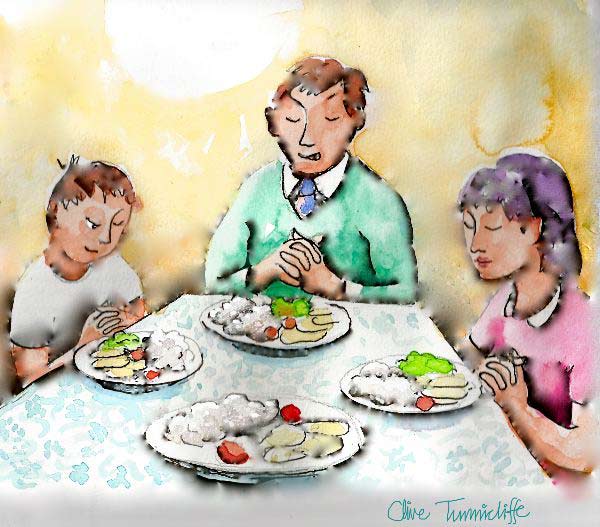

先日、昼食を食べながらふとあることを思い出しました。僕は日本に来てすぐに、新潟県の中学校で教師の仕事をさせてもらいました。日本語は数えるほどしか知らなかったので、もちろん聞き取ることもほとんど出来ません。そんな中、初めての給食の時間が来ました。僕が通ったイギリスの母校の給食とは違い、見た目からして綺麗で、とても美味しそうな匂いがします。いつ食べ始めるんだろうと思って待っていると、クラスの担任が何かひとこと言いました。すると、ほとんどの生徒が手を合わせて頭を下げ、同じことを言ったのです。僕は「えぇ、お祈りしてる!日本人ってこんなに信仰深いんだ!」と驚きました。
今では、食材に対する感謝の気持ちや、食事に携わってくれた人への感謝を「いただきます」と口にするこの日本の文化をとても素晴らしいものだと思っています。
それでは、もし英語で食事の前に「いただきます」のようなことを言いたい場合は、何と言えば良いでしょう。
まず、神に感謝はしますが、食材全ての命に対する感謝という概念はないと思います。キリスト教、ユダヤ教、イスラム教などの人たちは、食事を食べる前によく短いお祈りをします。キリスト教の場合、それを saying grace といいます。お祈りはいくつかありますが、以下の2つのお祈りをよく耳にします。
Bless us, O Lord, and these, Thy gifts, which we are about to receive from Thy bounty. Through Christ, our Lord. Amen.
For what we are about to receive, may the Lord make us truly thankful. Amen.
もちろん、無宗教の家庭や祈らない家庭も沢山あります。そんな場合、素直に作ってくれた人への感謝の気持ちを伝えると良いでしょう。
Thanks for making dinner.
料理を作ってくれてどうもありがとう。
Thank you. This looks amazing.
Thank you. This looks delicious.
ありがとう、とっても美味しそう。
そして、食べ始める為の掛け声なら、
Okay, let’s eat.
Okay, let’s start.
さぁ、食べましょう。
などと言うのも良いでしょう。
やはり、食前も食後も決まった挨拶はないので、素直に感謝の気持ちや感想を述べるのが一番良いと思います。

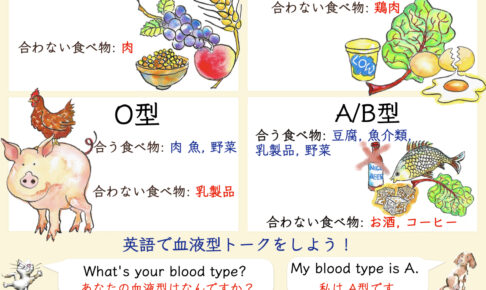
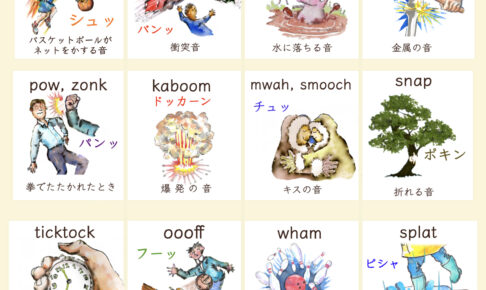
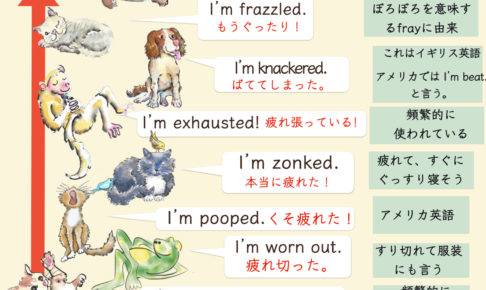






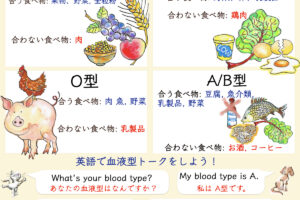
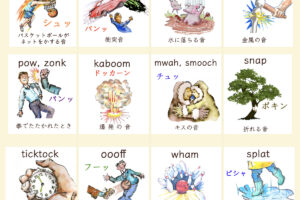


My friends say “Humbly partake” or I’d say “Eat a duck in a mouse”very fast.How does it sound?
My friends say “Let’s rocknroll!”
Is this common?
I kinda force my boyfriend to say it because it’s just natural, but he can’t pronounce “ki,” so we started to saying いただけます:)
Hi there, Luke. What about the use of “bonapettit”?
I know this term stemed from French, and English adopted it.
But I heard that English speakers use this term only for feasts. Is that correct?
I’ve been EU and US for over the 10 years, and I know many of UK people say ‘Bonapettit’. So that as long as my experience, UK people use this word daily even at the Pub!
Hi, Luke.
I am a fan of your helpful and witty website. I always enjoy reading your articles.
It’s been quite a while since you last posted. I guess you are busy but hope everything is going well with you.
I look forward to your future post.
Cheers,
Tammy
Lukeさん
いつもすばらしい記事ありがとうございます!!いつも楽しみにしてます
こんにちは、楽しく拝見しています。いつもの可愛い挿し絵はLukeさんがかいてるんですか?
もう、更新してくれないのでしょうか。
心配しています。
Hi Luke
How are you? Recently, I’m worried about you.
I’m always enjoying your post and looking forward to your new post!! いつもありがとう。新しいの楽しみに待ってるで!
xxx
私は神に感謝してるんじゃなくて、食材に感謝してますよ。日本人は神にというより犠牲になった生命にいただきますと言っていると思います。
I think so too
Hi Luke I hope you coming back soon. I’ve been learning a lot by your lesson.
“ITADAKIMASU” = Thank you for dispensation me your life.
I’d like to study English. Your informations make me exciting! Please tell me more informations.
I’d like to study English. Your informations make me exciting! Please tell me more informations.
How are you? i hope you coming back soon
はじめまして
“子供”は英語でchild(人によってはkid)ですよね。
ある人が“なんとかchicken”とも言うよ…って言ってました。
chickenの前の部分がはっきり解らないのですが、本当ですか?
Lukeさん、こんばんは!
ある単語を調べていたら、このサイトを見つけて以来、面白くて小まめにチェックするようになりました。
最近更新してないみたいで少し心配になったので、初めてコメントしました。
またの更新、楽しみに待ってます♡
We miss you!
こんにちわ。私はオーストラリアに居るのですが、たまに無意識にいただきます。っと手を合わせていたらどういう意味?と、突っ込まれ説明にスゴく困りました。でも、わかってもらえた時には、スゴく素敵だね!といって、覚えている時は一緒に「いただきます」って日本語で言う様になって 🙂 カワイイや、寿司のように「いただきます」も全世界共通になればいいのに♪なんて!笑
今日 友達と食事をして
帰り際に店員さんに
「ごちそうさま」
と言ったら友達にどういう意味?って聞かれて困ってしまいました。普段 無意識に使っている言葉の説明は難しいですね。。。
どの記事もとてもinterestingです!特に文化を学べるのが
とてもinteresting!! 楽しいです!
Thank you. 本当にありがとうございます。
I love your blog.We miss you.
Dear Luke. We are looking forward to the day that we can see you again someday. Take care of yourself☆
I think that in the US, there is no equivalent to いただきます for adults eating together.
“Let’s eat” sounds like parents talking to children, especially after some delay in getting dinner on the table, for example.
“Bon Appetit” sounds totally pretentious. If I heard this from an American, I would feel the urge to get up and leave the table.
Saying grace (i.e., praying): Fine if at home with your religious family, but I think no one does this outside their own home. Certainly never with people you do not know very well, unlike with いただきます。
So why not just accept that, at least in American English, there is no equivalent to いただきます。There does not need to be an equivalent. No need to force Japanese language onto the English language, or the English language on Japanese, for that matter.
Hello,Luke.
My friend who is Catholic will come to my plece.
I’d like to pray with him insted of saying ‘Let’s eat.’
Could you record the pray with voice and upload?
「いただきます」「ごちそうさま」それ自体は至って普通の言い回しですね。
要するに「いただく」と言っているだけなので、英訳するなら「Let’s eat」や「Let’s have a lunch」ぐらいでも構わないはずです。
「ごちそうさま」は「お生憎様」「ご愁傷様」などと同類の構文で、もし聞かれたら「What a nice feast」という意味合いだと説明すればいいと思います。
外国での食の習慣については、非言語表現の辺りもいろいろ調べてみたいですね。